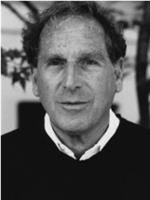纳撒尼尔·多斯基 Nathaniel Dorsky

- 性别:男
- 职业:导演
纳撒尼尔·多斯基简介
影人资料
Nathaniel Dorsky (born 1943) is an experimental filmmaker and film editor who has been ****** films since 1964. He intends that his 16mm silent films "****** a state of prayer" not by treating Buddhism as a subject but by expressing "the view that comes from Buddhism". Dorsky was born in New York ****, attended Antioch College and New York University, and has lived in San Francisco since 1971. In his book Devotional Cinema (2003), Dorsky writes of the long-standing link between art and health as well as the transformative potential of watching film. He also writes of the limitations of film when it is subservient to theme or dependent on "the ornament of language", which can describe a world but not see it. According to critic and historian Richard Suchenski, in Dorsky's films objects are “decontextualized and sometimes unmoored from their surroundings, allowing connections to develop which resonate not only between shots but also across the films as a whole, encouraging **** active forms of awareness.” Dorsky was a visiting instructor at Princeton University in 2008 and he has been the recipient of many awards including a Guggenheim Fellowship 1997 and grants from the National Endowment of the Arts, the Rockefeller Foundation, the LEF Foundation, the Foundation for Contemporary Arts, and the California Arts Council. He has presented films at the Museum of Modern Art, the Centre Pompidou, the Pacific Film Archive, the Harvard Film Archive, and Yale University, and he frequently exhibits new work at the New York Film Festival's Views from the Avant-Garde and the Wavelengths program of the Toronto International Film Festival. In spring 2012 Dorsky took actively part in the three month exposition of Whitney Biennial. Dorsky's films are distributed by Canyon Cinema in San Francisco and Light Cone in Paris.
